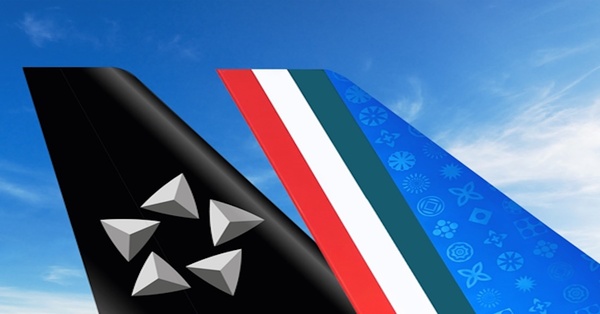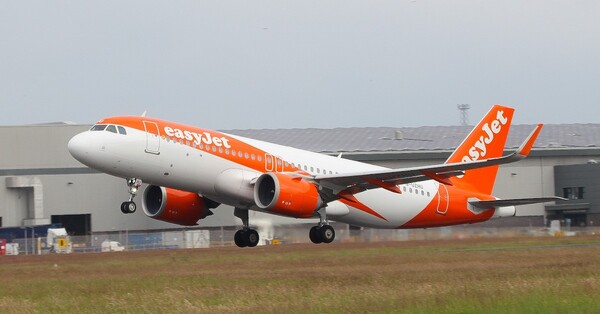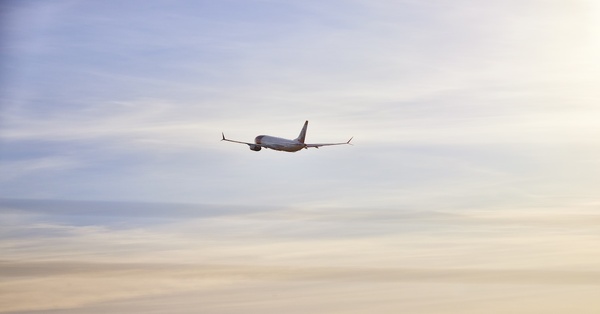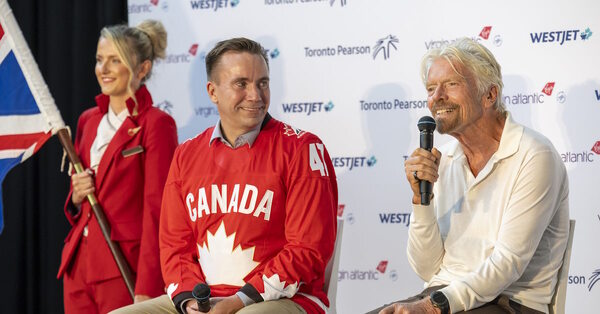You are viewing 1 of your 2 free articles
The Green Debate: who pays for air travel’s environmental impact?
www.travelweekly.co.uk/assets/getAsset.aspx?ItemID=2895 style="MARGIN-TOP: 4px; FLOAT: right; MARGIN-BOTTOM: 4px; MARGIN-LEFT: 4px; WIDTH: 100px; HEIGHT: 100px" alt="" src="//node3.travelweekly.co.uk/images/cms/getasset.aspx?itemid=2895.jpg">REPRESENTATIVES from the Government, the travel trade and the aviation industry met to tackle environmental issues at Travel Weekly and ABTA's Green Debate last week.
High on the agenda was the continuing growth in air travel, and who pays for its impact on the environment. Ian Taylor rounds up the issues, the arguments and the possible solutions.
www.travelweekly.co.uk/assets/getAsset.aspx?ItemID=3849 style="BORDER-RIGHT: 1px solid; BORDER-TOP: 1px solid; MARGIN-TOP: 4px; FLOAT: right; MARGIN-BOTTOM: 4px; MARGIN-LEFT: 4px; BORDER-LEFT: 1px solid; BORDER-BOTTOM: 1px solid" alt="Department for Transport head of environmental aviation Martin Capstick" src="//node3.travelweekly.co.uk/images/cms/getasset.aspx?itemid=3849.jpg">THE Government is committed to ensuring airlines pay the full cost of their impact on the environment, and that could include a tax on flying without a speedy move to tackle carbon emissions.
Martin Capstick, head of the environmental aviation division at the Department for Transport, said: “We’re looking at a situation where the environmental impact of the sector is likely to grow, with UK air travel forecast to grow two to three times by 2030.
“The impact of other sectors is likely to shrink and people will ask why aviation can’t do the same.”
He said the Government had outlined its view in the White Paper, the Future of Air Travel, in 2003. It recognised the importance of aviation and public desire to take advantage of affordable flights, while accepting a need to reduce the impact of existing airports and the need for new ones.
But he said it was a key Government aim “to ensure that, in time, aviation pays the external costs of its environmental and social impacts”.
British Air Transport Association secretary general Roger Wiltshire acknowledged demand is growing, but he said: “Tax is a blunt instrument, and the industry has a good track record on fuel efficiency.
"There has been a 50% improvement in 30 years, and we expect another 50% improvement, including air traffic management efficiencies, by 2020.”
Capstick said: “Developments in technology will be part of the solution. But technology will not offer a complete answer.
“We are exploring economic instruments that send the right price message to the sector and to your customers. Some say we should act now to damp down the demand. That is not a position the Government has adopted, but it is keeping it under review.
“There is also the question of access to and from airports. People don’t mysteriously just arrive at an airport, their flight is part of a whole journey.”
Airlines say APD is taxing enough
www.travelweekly.co.uk/assets/getAsset.aspx?ItemID=3848 style="BORDER-RIGHT: 1px solid; BORDER-TOP: 1px solid; MARGIN-TOP: 4px; FLOAT: right; MARGIN-BOTTOM: 4px; MARGIN-LEFT: 4px; BORDER-LEFT: 1px solid; BORDER-BOTTOM: 1px solid" alt="British Air Transport Association secretary general Roger Wiltshire" src="//node3.travelweekly.co.uk/images/cms/getasset.aspx?itemid=3848.jpg">AIRLINES argue the UK already has an environmental tax on air travel in the form of air passenger duty, which raises just under £1 billion a year.
British Air Transport Association secretary general Roger Wiltshire was opposed to additional environmental taxes being discussed by the major parties. “Passenger duty reflects more than the cost of carbon dioxide emissions.
“The UK contributes 2% of global carbon dioxide emissions. If all UK flights stopped tomorrow, it would affect 0.1% of global emissions.”
But Eurostar UK marketing director Greg Nugent said: “The public see flying as potentially morally irresponsible. To say UK aviation only accounts for 0.1% of global carbon dioxide emissions is almost saying we don’t have a problem.
“Consumers will not see it that way, and if the aviation lobby continues down that road, it will have a problem.”
Wiltshire acknowledged the boom in flying was outpacing improvements in fuel efficiency and making emissions a growing problem.
Finding ways to offset the problem
WHITEHALL would prefer to deal with the environmental impact of aviation through the European Union’s emissions trading scheme.
This provides incentives for companies to cut their carbon dioxide emissions, while increasing costs for those that do nothing to cut pollution.
However, Department for Transport environmental aviation division head Martin Capstick said a delay in bringing airlines into the scheme might force the Government to take other measures, including imposing a tax on flights. He accused some in the industry of expressing support for trading in the belief that a delay would allow them to do nothing.
Both main opposition parties have begun formulating policies for a green tax on flights.
Capstick said: “The Government favours emissions trading and not just hitting the industry with tax. It would give some flexibility in deciding how best to respond – whether to reduce emissions, change services or buy carbon credits. Some say they are keen, but don’t expect it to happen for years.”
A European Commission directive outlining proposals for the scheme is expected by the end of the year.
www.travelweekly.co.uk/assets/getAsset.aspx?ItemID=3850 style="BORDER-RIGHT: 1px solid; BORDER-TOP: 1px solid; MARGIN-TOP: 4px; FLOAT: right; MARGIN-BOTTOM: 4px; MARGIN-LEFT: 4px; BORDER-LEFT: 1px solid; BORDER-BOTTOM: 1px solid" alt="ABTA head of consumer affairs Keith Richards" src="//node3.travelweekly.co.uk/images/cms/getasset.aspx?itemid=3850.jpg">THE meeting settled on a series of priorities, summarised by ABTA head of consumer affairs Keith Richards:
- Establishment of a clearer Government/industry interface.
- Development of an industry strategy, so the Government understands its point of view.
- Development of clear, simple messages on the environment and the benefits of travel.
- Commitment to environmental policies at a high level within companies.
- Recognition of the opportunities as sustainable tourism demand increases.
- Open sharing of case studies and good practice.
Richards said: “It’s a mark of our progress that previous meetings have spent hours just trying to find a definition of sustainable tourism. We’ll look seriously at the Travel Foundation’s offer to develop a sustainable tourism strategy.
“There are some easy things we can talk about, such as getting to an airport without using a car. But we also have to emphasise the economic benefits of tourism. We can’t get away from the fact that prosperity for many destinations arrives by air.”
ABTA plans to continue the debate at its Convention in November. Richards said: “We will explore setting targets and indicators – short-term goals, long-term goals and how to map progress.”

















